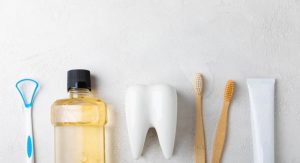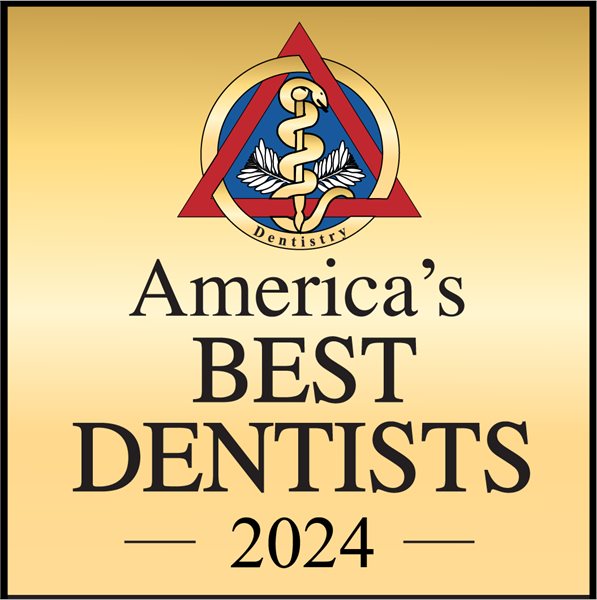Caring for Dental Crowns
Taking Care of Your Dental Crowns for Long-Lasting Success
Dental crowns are a popular and effective solution for various dental problems, providing strength, protection, and aesthetic appeal to damaged or compromised teeth. However, to ensure the long-term success of your treatment, proper aftercare is crucial.
Explore the essential steps you need to take to ensure the longevity and optimal performance of your dental crown with our dentist at our Northridge dental office. Dr. Gropp and his team are committed to helping patients care for their dental crowns and protect their oral health!

Why Taking Care of Your Dental Crown Matters
Taking proper care of your dental crown can lead to a long-lasting solution that provides you with a beautiful smile. Other important factors include:
- Healing and Recovery: After the placement of a dental crown, the gums, and surrounding tissues need time to heal. Following the aftercare instructions provided by your dentist will help promote proper healing, minimize discomfort, and reduce the risk of complications.
- Oral Hygiene Maintenance: Good oral hygiene is essential for maintaining the health of your natural teeth and the longevity of a dental crown. Brush your teeth at least twice daily and floss daily, paying attention to the area where the crown meets the gum line. This helps prevent plaque buildup and reduces the risk of gum disease and tooth decay.
- Regular Dental Checkups: Schedule and attend regular dental checkups and cleanings as advised by our dentist. These visits allow your dentist to monitor the condition of your dental crown, identify any potential issues early on, and provide appropriate treatment if needed.
- Longevity of Crowns: With proper aftercare, dental crowns can last many years, even up to a decade or longer. By following the recommended aftercare practices and maintaining good oral hygiene, you can maximize the lifespan of your dental crown and avoid the need for premature replacement.
How to Care for Your Dental Crown
The Basics
Taking care of your dental crown is similar to maintaining natural teeth but with a few additional considerations. By following these fundamental dental crown aftercare practices, you can significantly prolong the lifespan and functionality of your restoration:
- Practice Good Oral Hygiene: Brush your teeth at least twice daily with a soft-bristled toothbrush and fluoride toothpaste. Floss daily and rinse with an antimicrobial mouthwash to remove plaque and food particles around the dental crowns.
- Avoid Hard and Sticky Foods: Dental crowns are strong, but they can still be susceptible to damage. Avoid biting on objects such as ice, pens, or nuts, as well as sticky candies that can pull on the crowns.
- Minimize Consumption of Staining Substances: While dental crowns are resistant to staining, they can still accumulate discoloration over time. Limit your intake of coffee, tea, red wine, and tobacco to maintain the natural brightness of your dental crowns.
Oral Hygiene Practices
Maintaining proper oral hygiene is essential to preserve the health and appearance of your dental crowns. Here are some dental crowns aftercare tips related to oral health and hygiene practices:
- Brushing Techniques: Use a soft-bristled toothbrush and fluoride toothpaste to gently clean your dental crowns. Hold the toothbrush at a 45-degree angle and use small circular motions to reach all surfaces of the crowns. Pay close attention to the gum line to prevent gum disease.
- Flossing: Flossing is crucial to remove plaque and food particles from the spaces between your teeth and dental crown. Use a floss threader or a water flosser to clean the areas around the crown effectively.
- Using Antimicrobial Mouthwash: Rinse your mouth with an antimicrobial mouthwash after brushing and flossing. This helps kill bacteria and prevent plaque buildup, reducing the risk of gum disease and decay around the dental crowns.
Lifestyle Considerations
Certain lifestyle habits can impact the longevity and performance of your dental crown. Here are some tips to consider:
- Avoid Teeth Grinding and Clenching: Bruxism, or teeth grinding, can exert excessive force on dental crowns, leading to fractures or dislodgement. If you grind or clench your teeth, discuss with your Northridge dentist about wearing a nightguard to protect your crowns during sleep.
- Protect Dental Crowns During Physical Activities: If you participate in contact sports or activities that pose a risk of dental trauma, consider wearing a mouthguard. A custom-fitted mouthguard can provide an extra layer of protection for your dental crown.
- Minimize Exposure to Acidic and Sugary Foods: Acidic and sugary foods can erode the enamel surrounding your dental crown, increasing the risk of decay and damage. Limit your consumption of acidic beverages like citrus juices and carbonated sodas, as well as sugary snacks and desserts.

Caring for a Temporary Dental Crown
Before receiving a permanent crown, most patients will receive a temporary crown until the permanent one is complete. To care for a temporary crown, do the following:
- Avoid Sticky Foods
- Be Careful With Hard Foods
- Avoid Hot Foods
- Chew on the Opposite Side
- Avoid Direct Flossing
- Maintain Oral Hygiene
- Rinse with Salt Water
- Avoid Grinding or Clenching
- Be Mindful of Loose Feeling
- Monitor for Swelling or Allergic Reactions
- Keep Your Follow-Up Appointment
Why Choose Dr. Gropp For Your Dental Crown Care?
When it comes to dental crowns, proper long-term care is key to ensuring their durability and natural look. This is why choosing an attentive, meticulous dentist like Northridge dentist Dr. Gropp is so important. Dr. Gropp makes crown care a priority through:
- Careful monitoring at follow-up visits to check the crown’s fit and condition over time. He is diligent about adjusting crowns if needed.
- His artistic eye and attention to detail when evaluating the color match of crowns to surrounding teeth. He fine-tunes shade if necessary.
- His patience in answering all questions and concerns about crown maintenance and oral hygiene.
- His gentle, precision approach to examining the interface between the crown and tooth prevents decay.
- His use of minimally invasive techniques whenever possible for re-cementing dislodged crowns to preserve tooth integrity.
- His quick response if patients experience any sensitivity or discomfort from their crown.
Frequently Asked Questions
Can I brush and floss around dental crowns like natural teeth?
Absolutely! Brush and floss your dental crowns just like you would with natural teeth. It’s essential to clean the area where the crown meets the gumline to prevent plaque buildup and gum disease.
What should I do if my dental crown feels loose?
If you notice that your dental crown feels loose or dislodged, contact your dentist immediately. They’ll examine the crown and determine the best course of action, which may involve re-cementing the crown or replacing it with a new crown, if necessary.
Can dental crowns get cavities?
While dental crowns themselves can’t develop cavities, the natural tooth and structure beneath the crown are still susceptible to decay. It’s best to maintain good oral hygiene and attend regular dental check-ups to detect and treat any signs of decay early.
Follow These Tips for Effective Crown Maintenance
Proper dental crowns aftercare is crucial to ensure the long-term success and longevity of your dental crowns. By following the recommended dental care practices and maintaining good oral hygiene, you can enjoy the benefits of your dental crowns for many years to come.
Call our Northridge dental office at 818-709-8645 to schedule an appointment with our dentist and learn more about your dental crown treatment options.


